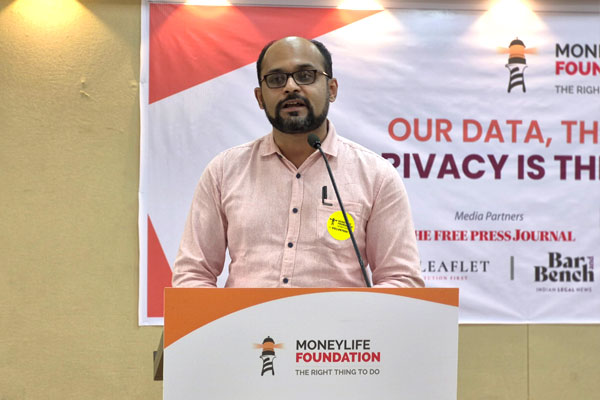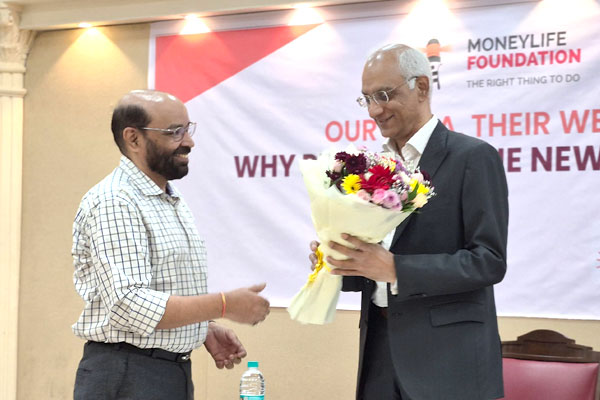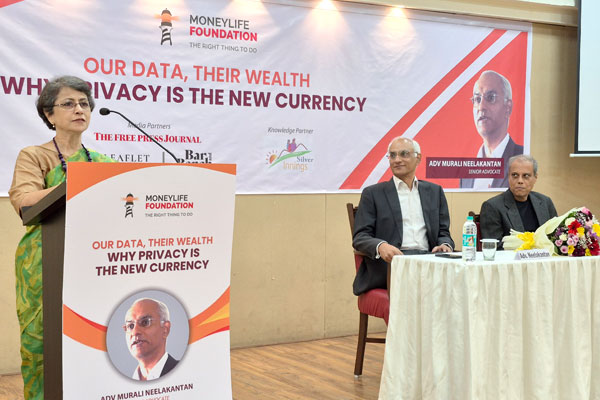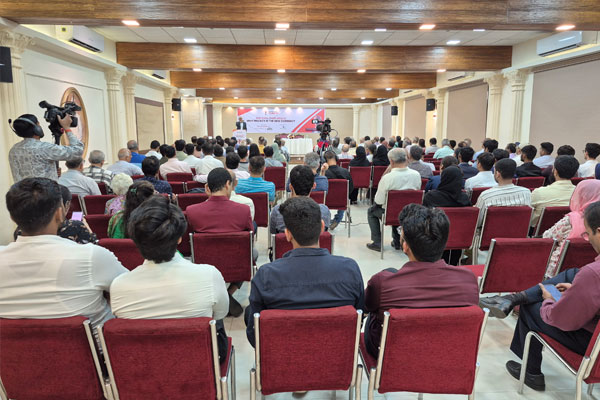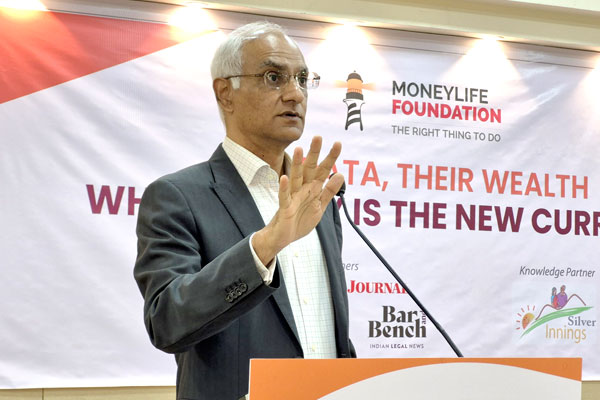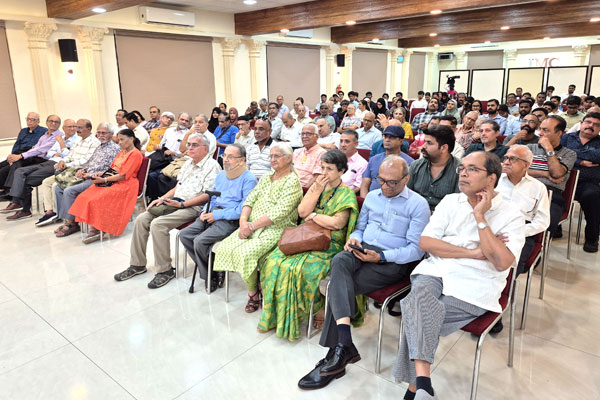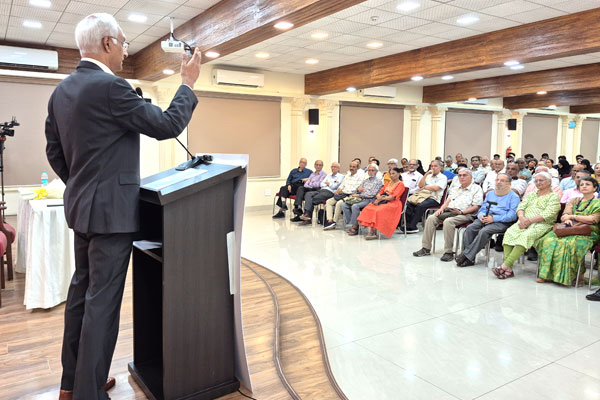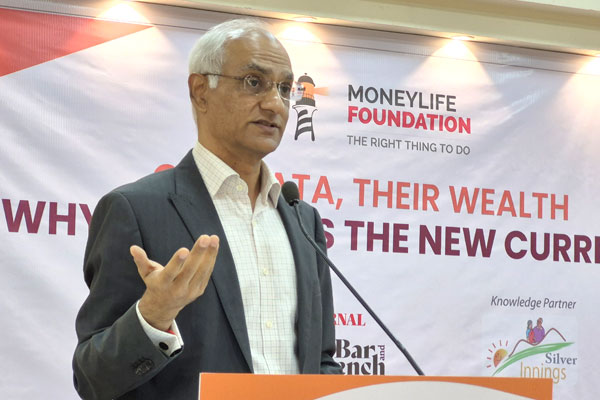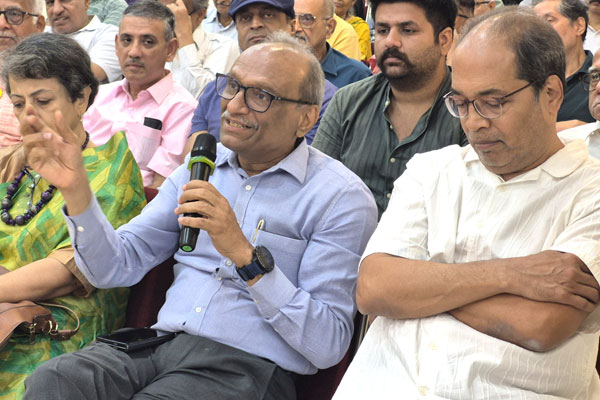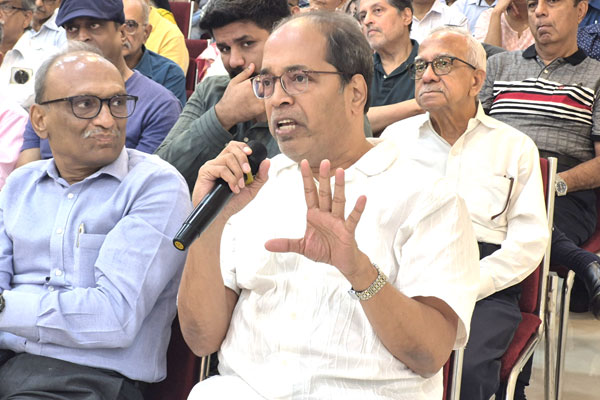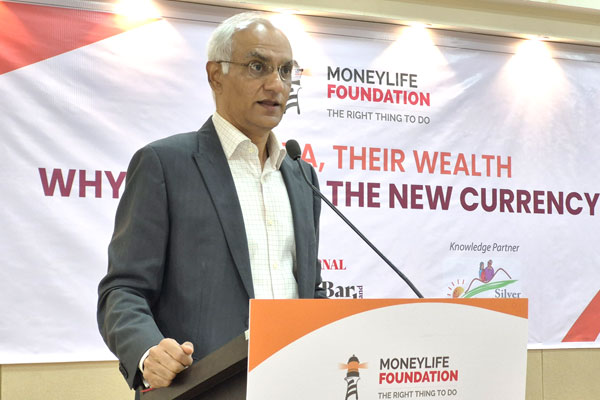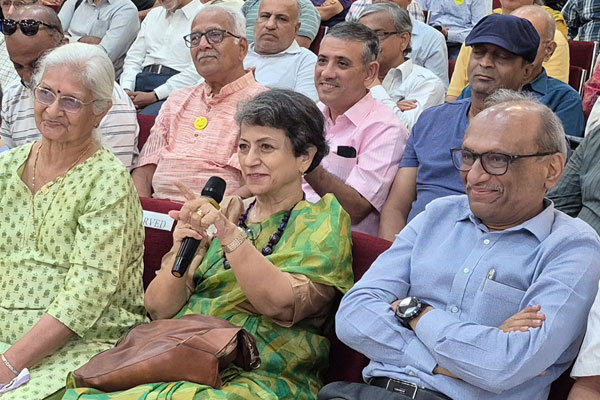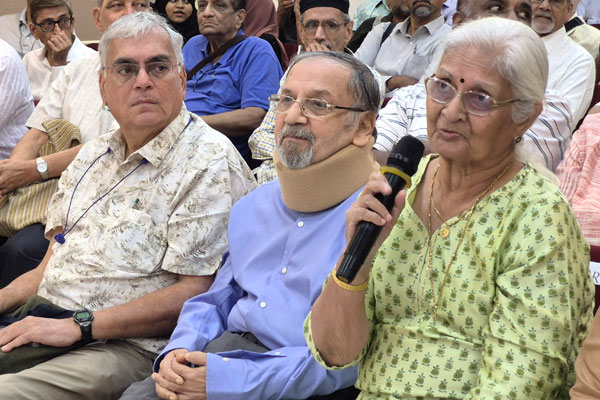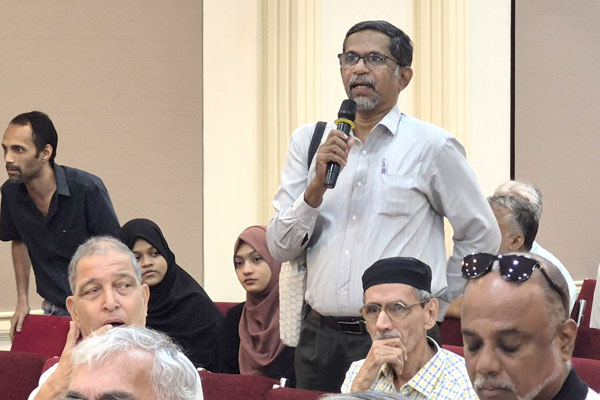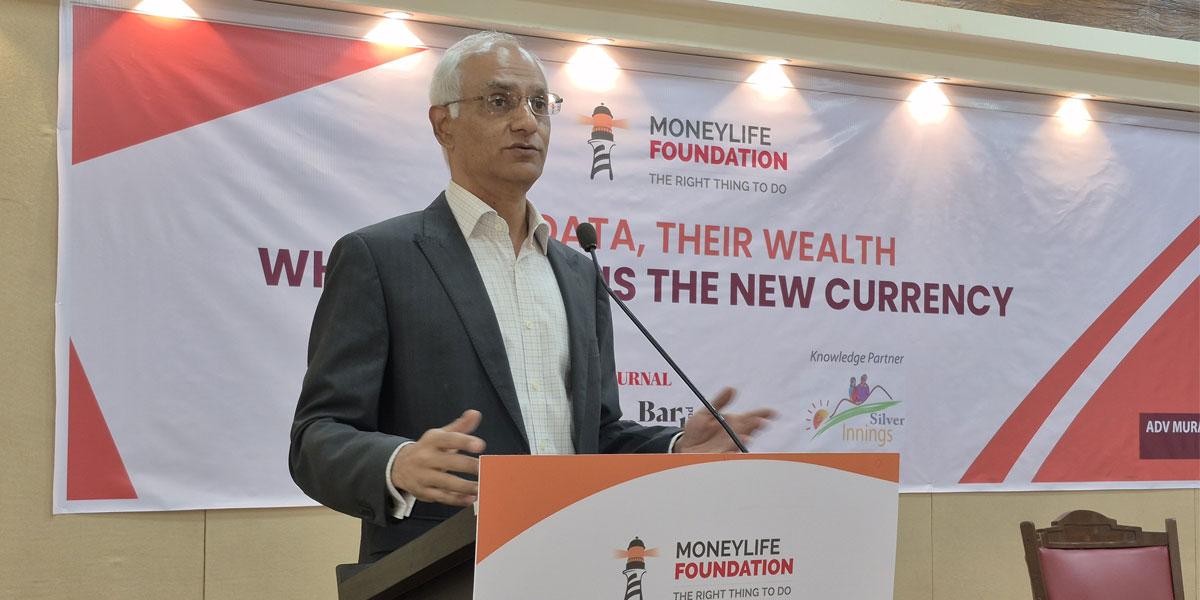
“Privacy is not about having something to hide; it is about control over your life. Most people say, ‘I have nothing to hide, so why should I care about privacy?’ But privacy is not about hiding; it is about control — over your choices, your information and your life,” says advocate Murali Neelakantan, former global general counsel at Cipla and Glenmark, known for his expertise in policy advocacy and corporate law. He was speaking at a seminar titled ‘Our Data, Their Wealth: Why Privacy Is the New Currency’, organised by Moneylife Foundation in Mumbai.
Setting the tone for a thought-provoking session, adv Neelakantan invited the audience to reflect on their own behaviour and attitudes towards personal data. “How many of you have ever given your phone number to a stranger?” he asked, prompting hesitant laughter and a sea of raised hands. From restaurant reservations to courier deliveries, building entries or even using mobile apps, he pointed out how easily people part with personal information without considering where it ends up.
“Each of you probably uses at least one device every day,” he noted, “but how many of you really know who’s listening, who’s tracking or where your data goes once it leaves your phone?”
His line of questioning quickly exposed how routine conveniences — from digital payments to online orders — have conditioned people to share sensitive information almost automatically.
Adv Neelakantan urged the audience to rethink the popular ‘nothing to hide’ argument, calling it misleading and dangerous. “If you say you have nothing to hide, then hand me your phone, your house keys, your bank passwords and your locker keys,” he quipped, as the audience broke into nervous laughter. “Privacy isn’t about secrecy — it is about autonomy. The moment someone else can see, predict or manipulate your behaviour, you have lost control.”
Drawing examples from everyday life, he explained how data collection has seeped into the most ordinary activities. From restaurants and delivery apps demanding phone numbers to residential societies using visitor tracking apps like MyGate and ApnaComplex, every layer of modern life now involves the exchange of personal data. “You might think it is harmless to share a phone number, an Aadhaar copy, or even your date of birth. But these are identifiers that can be combined and misused in ways you can’t imagine,” he says.
He described how surveillance and data capture have become so pervasive that most people no longer question them. “Google Maps tracks you even at 36,000 feet — in aeroplane mode,” he says, to surprised murmurs in the audience. “Your phone continues to record your movement. Think about that — if it is truly offline, how does it still know where you are?”
Moving beyond digital devices, adv Neelakantan also touched upon the commodification of health data, citing the proliferation of diagnostic labs that offer full-body tests at throwaway prices. “You pay Rs999 for a complete blood test, but what is happening to your medical data after that? That information — your age, gender, blood profile, health conditions — is immensely valuable for companies, insurers and data brokers,” he warned.
He pointed out that while Indians have become comfortable using technology, they remain dangerously unaware of how much data they surrender in return. “Gmail reads all your emails — not because it is malicious, but to help you ‘organise’ and ‘respond faster’. Facebook and Instagram track what you watch and how long you pause. None of this is accidental; it is designed. The product is offered free because you are the product, not the services offered as free.”
Throughout the session, he kept the tone conversational, asking questions rather than delivering monologues. “How many of you have ever refused to share your number or photo when entering a building?” he asked. Only a few hands went up. “Exactly. That is how normalised surveillance has become. You are not even aware when you are being watched.”
Towards the end of his talk, adv Neelakantan turned to what he called ‘the scariest part’ of the digital world — the explosion of online frauds and scams that exploit people’s own carelessness with data. “Thousands of crores have already been lost to financial fraud,” he warned. “It happens because we have freely given out information about ourselves. Every time you click a link promising a free gift or cashback, or sync your contact list to an app, you are giving scammers everything they need.”
He illustrated how common scams — such as fake courier calls, the ‘FedEx scam’, fraudulent WhatsApp messages about relatives in distress, or so-called ‘digital arrests’ — succeed because fraudsters already know personal details gleaned from social media and contact sharing. “They call you because they know you have a son or daughter abroad. They know your number, your habits, your greed,” he says, urging people to be more sceptical and deliberate online.
His advice was simple: stay calm, don’t click impulsively, and never share personal or banking details, no matter how official the caller sounds. “Most scams,” he observed, “work only because we are too curious, too greedy, or too trusting.”
Adv Neelakantan concluded his talk with a series of practical, common-sense tips for protecting one’s digital privacy. “Don’t log in unless you absolutely have to,” he advised, explaining that most websites and apps can be used without sharing unnecessary details.
He recommended switching to privacy-oriented browsers such as DuckDuckGo or Firefox instead of Chrome and Safari, and using a virtual private network (VPN) to mask one’s location while using internet. He also cautioned against sharing Aadhaar details except where legally required, such as linking them with PAN or for EPF transactions, and encouraged people to lock their Aadhaar to prevent misuse. “You can live life without using Aadhaar,” he says, adding that users should stop handing out photocopies of ID proofs to private entities.
He urged people to adopt password managers instead of reusing easy-to-guess passwords, to avoid storing all documents in platforms like DigiLocker, and to think twice before posting personal photos and travel details online.
Citing the growing use of artificial intelligence in scams, he warned that fraudsters can now imitate voices and video-call identities with alarming accuracy. “It is not very difficult to scam you by pretending to be a relative asking for money,” he says.
He also shared a practical idea for families — to use a secret word or phrase known only to close members, to verify authenticity in case of emergency calls or messages. “It may sound absurd, but it works,” he said. “Have different ones for different people, and never share them publicly.”
He also encouraged the audience to think of privacy not as an abstract right, but as a form of property — something valuable that can be taken, traded or stolen. “If we start thinking of our personal information as our property, we may begin to treat it with more care,” he says. “It’s not just data — it is your digital identity.”
In response to audience questions, he acknowledged that while India’s new data protection law is a step forward, the absence of detailed rules and enforcement mechanisms means individuals must still rely on awareness and caution to protect themselves. “Laws can only go so far. Until people themselves value their privacy, nothing will change,” he observed.
In a clever twist, the evening closed with a revelation from Moneylife Foundation. As part of a ‘fun exercise’ and for a chance to win a lucky prize, attendees had earlier been asked to share their names, dates of birth, Aadhaar numbers and residential addresses via WhatsApp. This was revealed to be a deliberate setup – a live demonstration of how easily people hand over sensitive personal information. (Nevertheless, Moneylife Foundation deleted all details shared by the attendees as part of the ‘fun exercise’.)
The exercise, much like the seminar itself, served as a powerful reminder that while digital convenience has become second nature, privacy remains a fragile and often neglected aspect of modern life.
A Video Recording of the Session is Available on Moneylife Foundation’s YouTube Channel:


